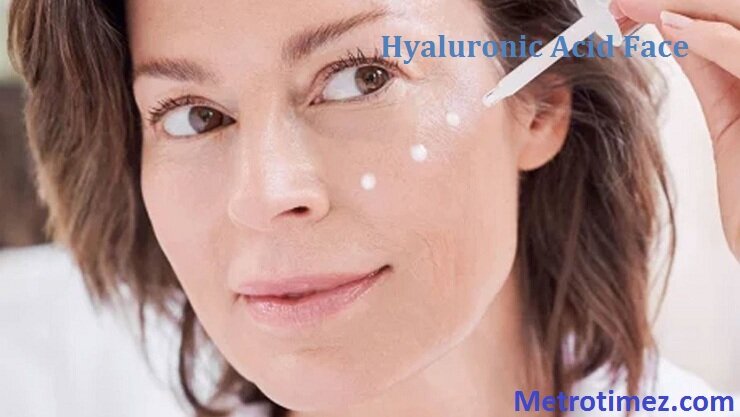
When it comes to skincare, hyaluronic acid has become a buzzword, praised for its hydrating and anti-aging properties. However, the market offers a variety of hyaluronic acid products, primarily face creams and serums. Deciding which is better for your skin can be challenging. This article explores the differences between hyaluronic acid face creams and serums, their benefits, and how to choose the best option for your skincare needs.
Understanding Hyaluronic Acid
Hyaluronic acid (HA) is a naturally occurring substance in the skin that helps retain moisture, keeping the skin hydrated and plump. With age, the levels of hyaluronic acid in our skin decrease, leading to dryness, fine lines, and wrinkles. This is where topical hyaluronic acid products come into play, replenishing the skin’s moisture and improving its texture and appearance.
Hyaluronic Acid Face Creams
Benefits of Hyaluronic Acid Face Creams
Hyaluronic acid face creams are designed to provide intense hydration and nourishment to the skin. They are typically thicker and richer in texture compared to serums. Here are some benefits:
- Moisture Locking: Face creams create a barrier on the skin that locks in moisture, preventing it from evaporating.
- Nourishment: They often contain additional nourishing ingredients like vitamins, peptides, and ceramides.
- Barrier Repair: Creams can help strengthen the skin’s natural barrier, protecting it from environmental stressors.
When to Use Face Creams
Face creams are ideal for those with dry or mature skin, as they provide long-lasting hydration and a protective layer. They are also beneficial for nighttime use, allowing the skin to repair and rejuvenate while you sleep.
Hyaluronic Acid Serums

Benefits of Hyaluronic Acid Serums
Hyaluronic acid serums are lightweight and fast-absorbing, delivering a concentrated dose of hyaluronic acid to the skin. Here are some benefits:
- Deep Penetration: Serums have smaller molecules that penetrate deeper into the skin for maximum hydration.
- Quick Absorption: They absorb quickly without leaving a greasy residue, making them suitable for layering under other products.
- Targeted Treatment: Serums are ideal for targeting specific skin concerns like fine lines, wrinkles, and dehydration.
When to Use Serums
Serums are suitable for all skin types, including oily and acne-prone skin, due to their lightweight texture. They are perfect for morning routines, providing a boost of hydration before applying sunscreen and makeup.
Comparing Face Creams and Serums
Texture and Application
- Face Creams: Thicker and richer, providing a moisturizing barrier.
- Serums: Lightweight and fast-absorbing, ideal for layering with other products.
Hydration and Moisture
- Face Creams: Provide long-lasting hydration by locking in moisture.
- Serums: Offer intense hydration by penetrating deeper into the skin layers.
- Additional Benefits
- Face Creams: Often include nourishing and barrier-repairing ingredients.
- Serums: Focus on delivering a high concentration of active ingredients for targeted treatments.
How to Choose the Right Product
Choosing between a hyaluronic acid face cream and serum depends on your skin type and concerns:
- Dry or Mature Skin: Face creams are more suitable due to their moisturizing and barrier-strengthening properties.
- Oily or Acne-Prone Skin: Serums are better because of their lightweight, non-greasy texture.
- Combination Skin: You can use both; a serum for hydration and a face cream for additional moisture and protection.
- Sensitive Skin: Look for products with minimal ingredients and fragrance-free formulas to avoid irritation.
Conclusion
Both hyaluronic acid face creams and serums offer significant benefits for the skin, but their suitability depends on individual skin types and needs. Understanding the differences can help you make an informed decision and achieve optimal skin hydration and health. Whether you choose a cream, a serum, or both, incorporating hyaluronic acid into your skincare routine is a step towards healthier, more hydrated skin.